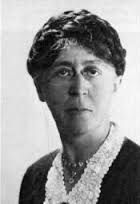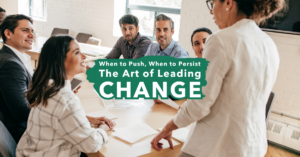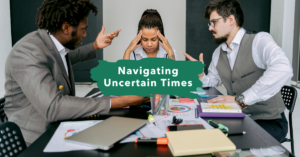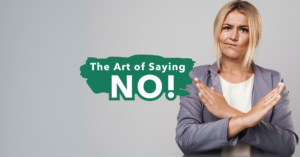I stumbled across Mary Parker Follett’s name about six months ago in the book, The Power of Collective Wisdom. My curiosity got the better of me – and I dug deeper. And what I found was the work of a brilliant women with great influence. Some call her the “mother of modern management.” How is it that I know her work and not her name?
 In celebration of Women’s History Month, I honor this female visionary. Although I never knew her name till recently, my study of her work reveals just how much of my practice in leadership and organizational dynamics is influenced by her.
In celebration of Women’s History Month, I honor this female visionary. Although I never knew her name till recently, my study of her work reveals just how much of my practice in leadership and organizational dynamics is influenced by her.
While we continue to benefit from her work, Follett was born into disadvantage. That disadvantage? Being born in 1869 – at a time when women were denied access to many things: the vote, property ownership, education and most careers. Her aptitude was noticed early; yet at that time women were not admitted to colleges. As such, she did study at the “Harvard Annex”, a place that connected promising female scholars with volunteer Harvard professors. Ultimately, the annex became what we now know as Radcliffe. Follett continued her studies abroad, ultimately graduating from Radcliffe summa cum laude.
Her contributions were many – to political science, business management, leadership theory, social science and business. Her work in civic organizing and community education both influenced those fields and also influenced her research and writing. She was an author, speaker, social worker, and business consultant before there were business consultants (or even many women in business).
Her work was both visionary and countercultural. Well ahead of her time, key themes of her work (paraphrased from The Essential Mary Parker Follett: Ideas We Need Today) include:
Valuing Differences
- Believed that every voice is essential to democracy; we must seek and embrace differences rather than fear or flee from them
- Noted that differences provide the opportunity for creativity, innovation, social progress, and true democracy
Group Organization
- Sees groups are fundamental for personal development, social organization and democracy
- Believes that groups are how coordination, creativity and growth occur
Integration as a Process
- Defined integration as a group process that builds on differences by uncovering true interests and engaging in genuine dialogue to come to a creative and novel solution; described as the merging of differences to find a new and creative way to integrate them into something better
Leadership
- An advocate of “power with” rather than “power over”
- Sees humans as able to co-create their futures
- Advocates for leading that is organized around a higher purpose, rather than an individual
Democracy
- Draws on her vision of “co-creating” the world
- Describes democracy as a place where the individual is affirmed, rather than subsumed
It is shameful that her work does not bear her name (had she been a “he”, no doubt we would all know of her work). But it does live on, and as someone who was ahead of her time, provides ample and much needed guidance for the place in which we find ourselves today. I’ll provide for you a sampling of her writing and a short annotated bibliography if you want to learn more. And note that, as one did in her day, pronouns are solely masculine.
On Valuing Differences
“What people often mean by getting rid of conflict is getting rid of diversity, and it is of the upmost importance that these should not be considered the same. We may wish to abolish conflict, but we cannot get rid of diversity. We must face life as it is and understand that diversity is its most essential feature. Fear of difference is dread of life itself. It is possible to conceive of conflict as not necessarily a wasteful outbreak of incompatibilities, but a normal process by which socially valuable differences register themselves for the enrichment of all concerned.”
On Group Organization
“Thus group organization releases us from the domination of mere numbers. Thus democracy transcends time and space, it can never be understood except as a spiritual force. Majority rule rests on numbers; democracy rests on the well-grounded assumption that society is neither a collection of units nor an organism, but a network of human relations. Democracy is not worked out at the polling booths; it is the bringing forth of a genuine collective will, one wot which every single being must contribute the whole of his complex life, as one which every single being must express the whole of at one point. Thus the essence of democracy is creating. The technique of democracy is group organization. Many men despise politics because they see that politics manipulate, but make nothing. If politics are to be the highest activity of man, as they should be, they must be clearly understood as creative.”
On Integration as a Process
“Moreover, the doctrine of integrating interests does away with that of the balance of interests which has so many advocates… In fact, observation of industrial controversy for the last ten years leads me to think that those disputes which are ‘settled’ merely by the balance of power are not really settled at all. The slightest shift of power brings the matter up again with accumulated rancor and hard feeling. The balance theory gets us nowhere in law or politics or international relations.”
On Leadership
“The skillful leader does not rely on personal force; he controls his group, not by dominating but by expressing it. He stimulates what is best in us; he unifies and concentrates what we feel only gropingly and scatteringly, but he never gets away from the current of which we are and he are both an integral part. He is a leader who gives form to the inchoate energy in every man. The person who influences me most is not he who does great deeds but he who makes me feel I can do great deeds… Who ever has struck fire out of me, aroused me to action which I should not otherwise have taken, he has been my leader… ”
On Democracy
“The good citizen is not he who obeys the laws, but he who has an active sense of being an integral part of the state. This is the essence and the basis of effective good citizenship. We are not part of a nation because we are living within its boundaries, because we feel sympathy with it and have accepted its ideas, because we have become naturalized. We are part of a nation only in so far as we are helping to make that nation.”
If you are interested in reading more:
The Essential Mary Parker Follett: Ideas We Need Today edited by Heon, Davis, Jones-Patulli and Damart This is an annotated collection of her writings, with a brief description of her life and work. My favorite by far, as it organizes her writings into major themes.
Creative Experience by Mary Parker Follett. This is a reprint of her 1924 publication. I started here (big mistake) and am going to have another “go” at it once I am more grounded in her thinking.
Mary Parker Follett: Creating Democracy, Transforming Management a biography by Joan Tonn. This was my second attempt (after Creative Experience). Be prepared – this is a 600 page read. Interesting read as it sheds light on what shaped her thinking and also the situation smart women found themselves in, post Civil War. Accessible, but not a page turner!
Dynamic Administration: The Collected Papers of Mary Parker Follett. A reprint of a 1940 edition. I’ve not tackled this one yet – but would love a review from someone who has!





7 Responses
Awesome post!! Thank you!
Wow! Thank you for shining a light on Mary Parker Follett. Truly enduring words.
Wonderful discovery Kris! There are many women who’s contributsion to the industrial age will be lost to history because of the attitude toward women in the early 1900’s. Among them are Katherine Stinson, Katherine Wright and Naomi Donnelley.
Kris, what a fabulous entry.
I just received an email with your link attached from Jennifer Jones-Patulli. Jen is one our a team of four who authored/edited “The Essential Mary Parker Follett: Ideas We Need Today.” The other members are Francois Heon, Montreal; and Sebastien Damart, Paris. My name is Albie Davis from Boston. What a fabulous presentation you made for Follett. In designing our book we wanted readers to read it in any order they wanted and take way the messages that spoke to them, and your lovingly designed approach is perfect.
There is a free site for people interested in Follett that now has 440 members from 65 countries: – mpfollett.ning.com – The menu has a drop down “Follett Writings” which has most of her books.
Thank you on behalf of all of us! Albie Davis
Mary Parker Follett has been my mentor since I discovered her in 2011. She’s amazing. Thanks for this post. Now is a great time to also read her book on democracy – A New State. Hoping to finish this book to inspire me during this bizarre election cycle.
Hi Alecia, Oh, how I know what you are feeling. And The New State is the perfect uplift. I would like to send you a copy of a recent article about Follett from the July 2015 Negotiation Journal. Title “When Webb Met Follett: NeGotiation Theory and the Race to The Moon.” Another feature in her hat being she was a bog influence upon James Webb, the Adimistrator of the National Aeronatic and Space Administration (!NASA). I would need you email. Mine is albiedavis@aol.com.
My best, Albie Davis
Sorry for all the typos! Albie
Comments are closed.